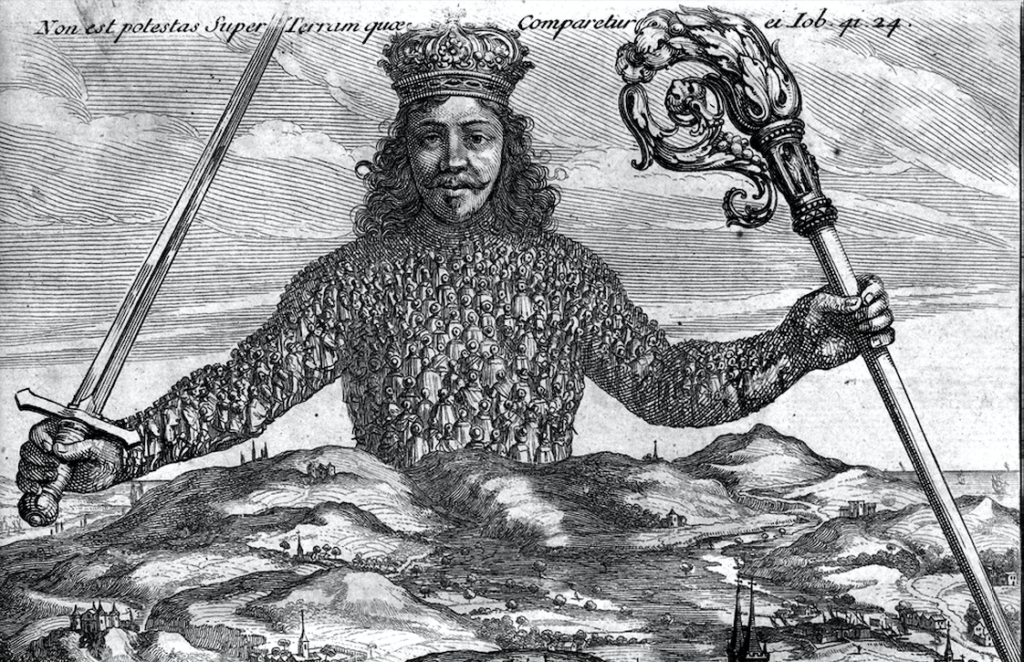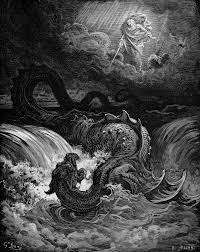Thomas Hobbes
We cannot understand Thomas Hobbes’ theory of the state without considering his traumatic experience during the civil was in England in the 17th century. Hobbes considered the civil war the worst fate a human being can face. This background helps us understand the sentence that is now considered the foundation of Hobbes’ state philosophy:
Homo homini lupus est
(A man is a wolf to another man)
The key question is: how can men live together without destroying each other?
The answer to this question is what he called the social contract.
The goal of this lecture is to explain this term, the social contract, and also to understand why it represents a milestone in the development of political ideas.
Leviathan
The leviathan is the image Hobbes uses to illustrate his concept of state. Society is organized as a huge human body, where the head is the ruling member, and the rest follows its guidance.
In the famous cover image of the original edition of Hobbes’ master work, the state appears as a synthetic man made up of all the men and women who inhabit it.

Hobbes takes the symbol of the state, the Leviathan, from the Bible. In Psalms (74:14) The Leviathan appears as a demonic, giant monster with the shape of a serpent that represents all the enemies of Israel. It is not a coincidence that Hobbes uses a demoniac monster as a metaphor of the state.

The leviathan has a crown, the symbol of sovereignty, and carries a sword, the symbol of force and violence.
In Hobbes’ ideal, the state is responsible for administration of justice and the enforcement of the law. It has also the monopoly of the use of force. Only the state can use violence to secure the internal order or the defense against external threats.
The Social Contract
The state is, indeed, a monster that represses the individual. Yet, in Hobbes’ pessimistic cosmovision, it is completely necessary to secure the survival of both individual and society. This system gives the sovereign an immense, almost absolute power.
Hobbes is not naïve, though. He is perfectly aware of the risk of power abuse.
The origin of the absolute power must be a social contract, an explicit agreement between the sovereign and the subjects of the state. The social agreement manifests itself in the written law that both state and individual must abide with.
It is important to emphasize that the law arises from the agreement among the citizens of the state.
This is the source of its legitimacy. Yet, this legitimacy vanishes automatically when the ruler betrays the social contract.
